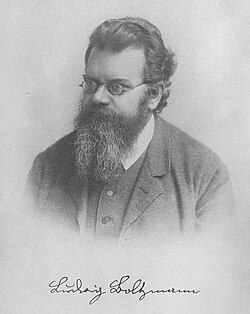Boltzmann brain

Imagine you are sitting in a classroom with other students, and the teacher asks a question. You raise your hand and give an answer, and the teacher praises you for being smart. But what if the answer you gave was just a random thought that popped into your head? Would that still make you smart?
That's kind of what a Boltzmann brain is. It's a hypothetical "brain" that could exist just by chance in a universe that follows certain physical laws. According to these laws, particles move around randomly in the same way that gas molecules do. Sometimes, these particles may happen to come together in a way that makes a brain-like structure that could experience thoughts and perceptions - even if there is no body or environment for it to interact with.
This means that if the universe existed for an infinite amount of time, it's possible that a Boltzmann brain could pop into existence and have a complete mental experience—but it would be totally isolated from everything else, which means that it would be completely useless to itself or to anyone else.
So why is this such a big deal? For one thing, it raises questions about the nature of the universe and the purpose of life. If a conscious entity like a Boltzmann brain could exist without any kind of purpose or meaning, what does that say about our own existence? It also has implications for the study of physics and philosophy, as scientists and theorists struggle to understand the fundamental laws that govern the universe we live in.
That's kind of what a Boltzmann brain is. It's a hypothetical "brain" that could exist just by chance in a universe that follows certain physical laws. According to these laws, particles move around randomly in the same way that gas molecules do. Sometimes, these particles may happen to come together in a way that makes a brain-like structure that could experience thoughts and perceptions - even if there is no body or environment for it to interact with.
This means that if the universe existed for an infinite amount of time, it's possible that a Boltzmann brain could pop into existence and have a complete mental experience—but it would be totally isolated from everything else, which means that it would be completely useless to itself or to anyone else.
So why is this such a big deal? For one thing, it raises questions about the nature of the universe and the purpose of life. If a conscious entity like a Boltzmann brain could exist without any kind of purpose or meaning, what does that say about our own existence? It also has implications for the study of physics and philosophy, as scientists and theorists struggle to understand the fundamental laws that govern the universe we live in.
Related topics others have asked about:
